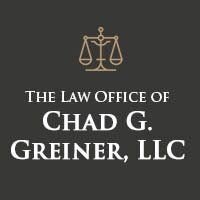Best Housing, Construction & Development Lawyers in Georgia
Share your needs with us, get contacted by law firms.
Free. Takes 2 min.
Free Guide to Hiring a Real Estate Lawyer
Or refine your search by selecting a city:
List of the best lawyers in Georgia, United States
About Housing, Construction & Development Law in Georgia, United States
Housing, Construction, and Development Law in Georgia covers the rules, regulations, and legal principles related to residential and commercial real estate, property development, building construction, landlord-tenant relationships, zoning, permitting, and land use. These laws govern how property is bought, sold, developed, and maintained across Georgia, ensuring that development is safe, fair, and meets the needs of communities. The field also addresses disputes, regulatory compliance, and government oversight that affect homeowners, developers, builders, landlords, tenants, and investors statewide.
Why You May Need a Lawyer
You may require legal help in Housing, Construction, and Development in Georgia in a variety of common scenarios. Examples include purchasing or selling a home, interpreting complicated real estate contracts, handling construction defects, pursuing or defending against foreclosure, disputing property boundaries or zoning regulations, dealing with code violations, negotiating landlord-tenant issues, or navigating disputes between contractors and property owners. A lawyer can help protect your rights, ensure contracts are fair and enforceable, resolve disputes efficiently, and provide crucial guidance on regulatory compliance.
Local Laws Overview
Georgia's housing, construction, and development laws are a mix of state statutes, local ordinances, and federal regulations. Key areas include:
- Landlord-Tenant Law: Georgia has its own set of rules governing rental agreements, security deposits, eviction procedures, landlord duties, and tenant rights as found in Title 44, Chapter 7 of the Official Code of Georgia.
- Zoning and Land Use: Each county and city may have its own zoning codes that regulate permissible land usage, building heights, density, and property setbacks.
- Building Permits and Codes: Construction in Georgia is regulated by the Georgia State Minimum Standard Codes, which cover safety, electrical, plumbing, and environmental concerns. Local governments enforce building permit requirements.
- Construction Contracts: Georgia law requires certain types of construction contracts to be in writing, and state statutes govern payment timelines, lien rights, and warranties for construction defects.
- Fair Housing: Both federal and state laws prohibit discrimination based on race, color, religion, sex, disability, familial status, or national origin in housing sales, rentals, and financing.
- Real Estate Transactions: Contracts, disclosures, and closing procedures must comply with both Georgia law and national standards such as RESPA.
Frequently Asked Questions
What rights do tenants have when renting a home in Georgia?
Georgia law grants tenants the right to a safe and habitable dwelling, privacy, and the return of their security deposit unless valid deductions are made. Tenants can seek remedies for unaddressed repairs and are protected against unlawful eviction.
What should I know before signing a construction contract?
You should review the contract’s scope of work, payment schedule, warranty provisions, deadlines, and dispute resolution clauses. Ensure all agreements are in writing and clarify any ambiguous terms before signing.
How do I resolve a zoning dispute in Georgia?
Zoning disputes typically begin with a complaint to your local zoning board. If you disagree with their decision, formal appeals may proceed through local government bodies or the courts. Legal counsel can help you navigate this process.
What is required to obtain a building permit in Georgia?
You need to submit plans, specifications, and permit applications to the local building department. Permits are required for most new construction, additions, or major remodeling projects. Application requirements vary locally.
As a homeowner, am I responsible for code compliance during renovations?
Yes. Homeowners are responsible for ensuring all renovation work complies with state and local codes. Failing to secure required permits or using unlicensed contractors can result in penalties and forced removal of unapproved work.
How are construction defects handled under Georgia law?
Georgia law typically holds contractors responsible for construction defects under implied or express warranties. Property owners may have the right to seek repair, damages, or other remedies through negotiation or litigation.
What steps are required for a legal eviction in Georgia?
Landlords must provide proper notice, usually seven days, and file a dispossessory action in court. Self-help eviction (changing locks or removing property without court approval) is illegal. Tenants may contest the eviction in court.
How does the foreclosure process work in Georgia?
Georgia follows a non-judicial foreclosure process, allowing lenders to auction the property without going to court if the mortgage contains a power of sale clause. Strict notice and advertising requirements must be met.
What is a mechanic’s lien and how does it work in Georgia?
A mechanic’s lien is a legal claim against a property by contractors or suppliers who have not been paid. Georgia law sets deadlines for filing and enforcing liens, and certain steps must be followed to protect lien rights.
Can a landlord increase rent at any time in Georgia?
Unless restricted by the terms of a lease, Georgia law does not regulate rent increases for private landlords. Landlords must give proper notice if the lease is on a month-to-month basis, commonly 30 days.
Additional Resources
Several organizations and government agencies provide support and information related to housing, construction, and development in Georgia:
- Georgia Department of Community Affairs (DCA) - Assists with affordable housing and community development programs.
- Georgia Real Estate Commission & Appraisers Board - Regulates real estate brokers and licensing requirements.
- Local City or County Building Departments - Issue permits and enforce building codes.
- Georgia Legal Services Program - Provides free or low-cost legal aid for eligible individuals.
- U.S. Department of Housing and Urban Development (HUD) - Oversees federal housing laws and programs.
- Atlanta Volunteer Lawyers Foundation - Offers legal help for housing and landlord-tenant matters in the Atlanta area.
Next Steps
If you need legal advice or representation in a housing, construction, or development matter in Georgia, start by gathering all relevant documents such as contracts, notices, correspondence, and government paperwork. Make a list of your questions and concerns. Contact a legal professional who specializes in real estate or construction law in Georgia, or reach out to a local legal aid organization if you need assistance but cannot afford a lawyer. Acting quickly helps protect your rights and increases the chances of a positive outcome.
Lawzana helps you find the best lawyers and law firms in Georgia through a curated and pre-screened list of qualified legal professionals. Our platform offers rankings and detailed profiles of attorneys and law firms, allowing you to compare based on practice areas, including Housing, Construction & Development, experience, and client feedback.
Each profile includes a description of the firm's areas of practice, client reviews, team members and partners, year of establishment, spoken languages, office locations, contact information, social media presence, and any published articles or resources. Most firms on our platform speak English and are experienced in both local and international legal matters.
Get a quote from top-rated law firms in Georgia, United States — quickly, securely, and without unnecessary hassle.
Disclaimer:
The information provided on this page is for general informational purposes only and does not constitute legal advice. While we strive to ensure the accuracy and relevance of the content, legal information may change over time, and interpretations of the law can vary. You should always consult with a qualified legal professional for advice specific to your situation.
We disclaim all liability for actions taken or not taken based on the content of this page. If you believe any information is incorrect or outdated, please contact us, and we will review and update it where appropriate.
Browse housing, construction & development law firms by city in Georgia
Refine your search by selecting a city.











